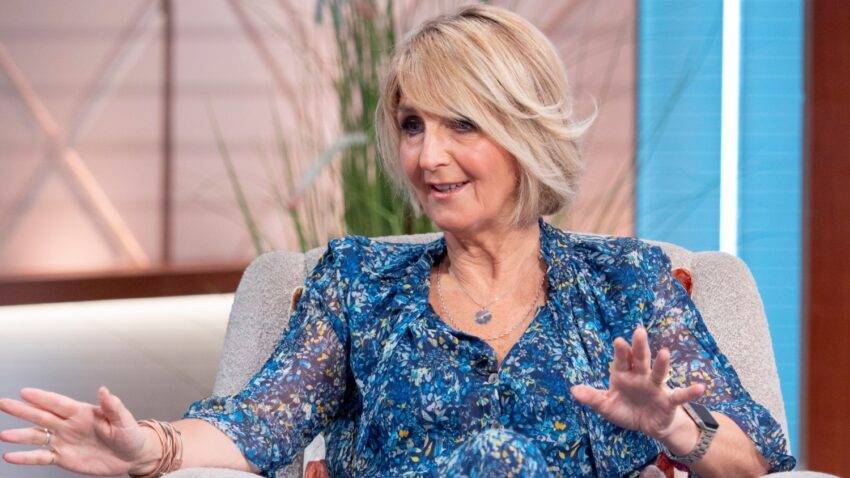Kaye Adams appears to have finally won a ten-year battle with HM Revenue & Customs after the tax authority said it had decided not to appeal after her latest court win.
The ITV presenter has been arguing her case that she is self-employed in the face of clampdown over so-called IR35 rules. Last year she won a third court victory over a disputed £124,000 tax bill.
HMRC said it had decided not to appeal against the First Tier Tribunal’s decision in the case of Atholl House Products, Kaye’s company. “Given this litigation has been ongoing for a number of years and the FTT does not set binding legal precedents, we don’t think it would be proportionate to appeal in this case,” a spokesman said. “We always seek to resolve disputes out of court first and only take action to litigate where this isn’t possible.”
The case centred around the question of whether Adams was a deemed employee of the BBC during the relevant tax years. The tax office had argued that she should be classified as an employee and therefore liable to pay more taxes.
However, the tribunal consistently found that Adams was genuinely self-employed.
The decision is a significant defeat for HMRC, which has been criticised for its aggressive pursuit of Adams.
Adams, who presents Loose Women, previously has said that the stress over the case had been “almost unbearable” at times.
In December Jim Harra, HMRC’s chief executive, came under fire from some MPs on the public accounts select committee, who accused the tax authority of unfair and heavy-handed treatment of workers who tried to challenge it over its interpretation of self-employment rules.
Dave Chaplin, CEO of IR35 Shield, who has been assisting Kaye with her case for six years is perplexed by HMRC’s claim: “The net tax at stake was £70,000 – so if proportionality was an issue, why did HMRC even bother with the first hearing, let alone the second, the third and the fourth? Why did HMRC spend a small fortune on three barristers for the final hearing? HMRC’s reason lacks substance – the reality is, HMRC squarely lost, but cannot admit it.
“HMRC dragged Kaye through litigation for 10 years, and at no point did the courts support HMRC’s view. The reality is HMRC issued Kaye with a large tax bill, which was never due, and was wrong to claim she was a deemed employee.
“Regrettably, as we have seen in almost all media cases, HMRC never capitulates, leaving the taxpayer no option but to pay up or climb aboard the tax tribunal merry-go-round.
“Whilst HMRC claim publicly that they always seek to resolve disputes out of court first and only take action to litigate where this isn’t possible, in IR35 cases, the reality is very different. Resolution tends to mean the taxpayer pays up, with HMRC never backing down.
“It’s no wonder that so many media people accused of paying the wrong amount of tax have paid up – they were fearful of becoming the next Kaye.
“The facts of the case were not complex, or unusual. One blindingly obvious fact was highlighted by the Court of Appeal when it said it would be “myopic” to ignore the fact Kaye was running her own business, and that “the fact that the person providing the work has an established career as a freelance” should be taken into account.”
In its press release, HMRC also referred to the fact that First-tier rulings do not set binding precedents, perhaps seeking to diminish the powerful binding precedents the case set through its course of four hearings.
“The importance of Atholl house cannot be underestimated and has set considerable legal precedents at both the Upper-tier and Court of Appeal, which HMRC’s litigation teams are currently relying on in other cases being litigated. To ignore Atholl House is to deliberately ignore the law.”
Speaking after the decision Kaye Adams said: “Whilst I am extremely pleased that HMRC has decided not to roll the dice on a fifth time lucky shot on my case, I remain utterly horrified at the behaviour of this department. The statement they released to the press, without my knowledge, twenty minutes after informing me of their decision, says they don’t think it would be ‘proportionate’ to appeal in this case.
It was never proportionate.
By the end of my first hearing five years ago, I had burned through more money in legal fees than the tax in dispute. Where was HMRC’s concern over proportionality when they appealed to Upper Tribunal and then appealed again to the Court of Appeal and then again hauled me over the coals in the First Tier Tribunal for a second time?
Not once did they score a victory over me, yet they kept going. And now they have the audacity to suggest, my case does not set legal binding precedent. It is outrageous.
Everyone in the media industry knows IR35 is a mess. Freelancers working for as few as ten days a year for engagers are being forced onto PAYE with no employment rights or benefits, HMRC knows IR35 is a mess. It knows it has been playing fast and loose with tax payers’ money to push through an interpretation of the law that it has frankly invented and it seems these faceless bureaucrats are accountable to no one.
They have the power to ruin good, honest hard-working people’s lives with no consequences.
It is not just lives they are trashing, HMRC is making a mockery of the legislation. Self- employed status is now determined according to the pressure applied by HMRC and risk management on the part of media companies, not according to the law.
This is a pyrrhic victory for me. I have won my case against HMRC and I have spent on legal fees nearly £300,000, which should have been in my pension. Justice eh!”


